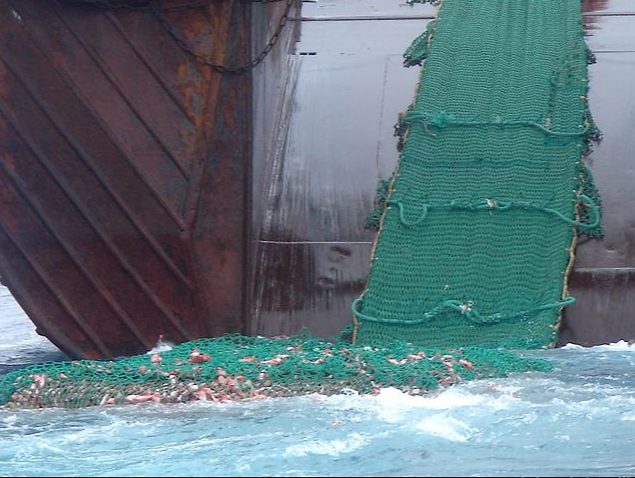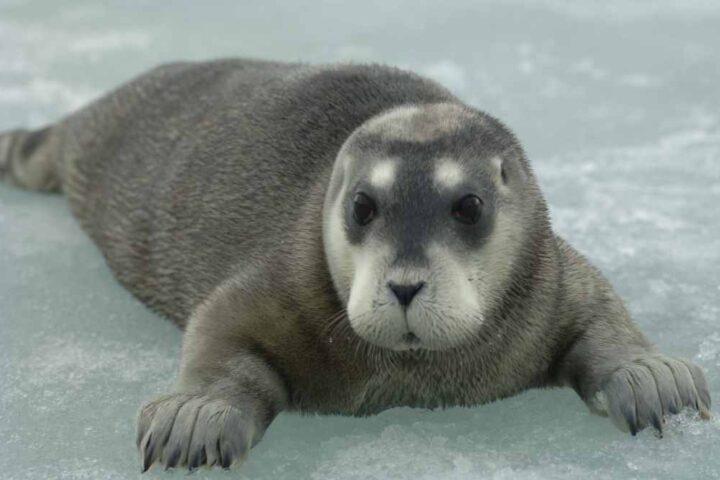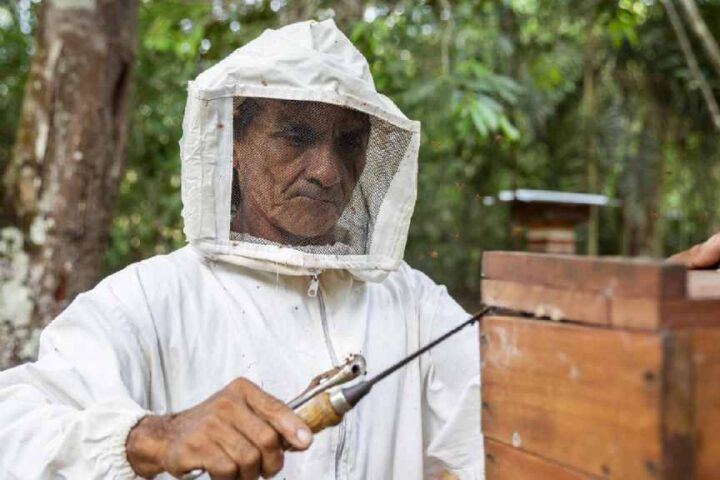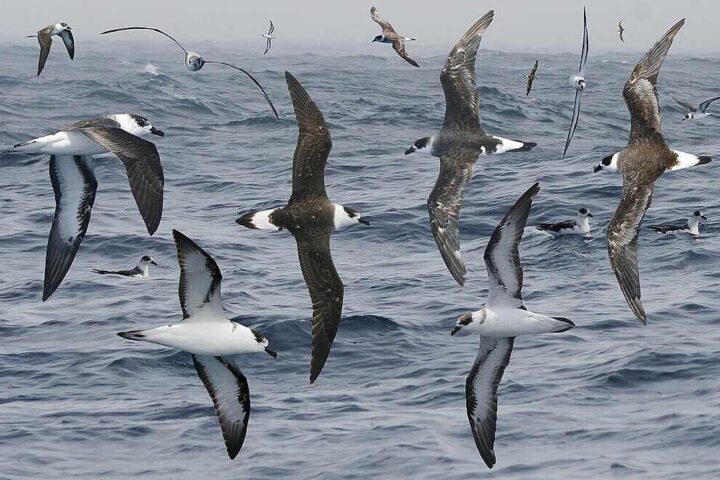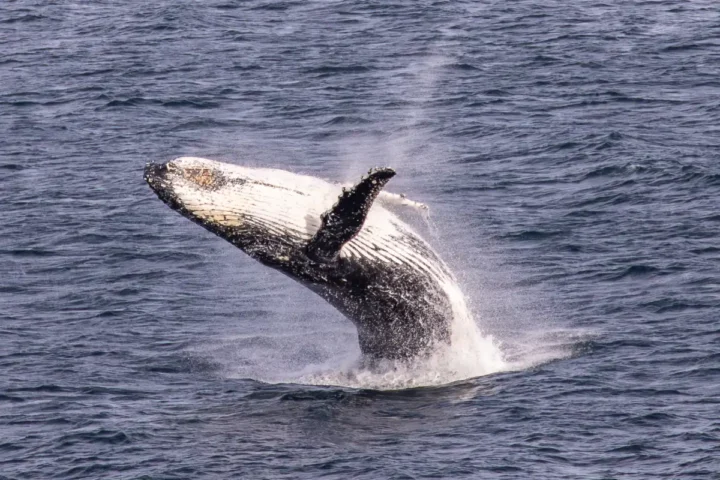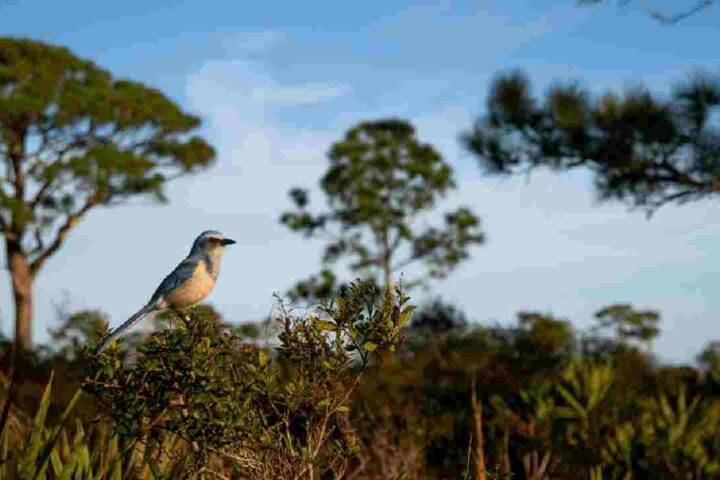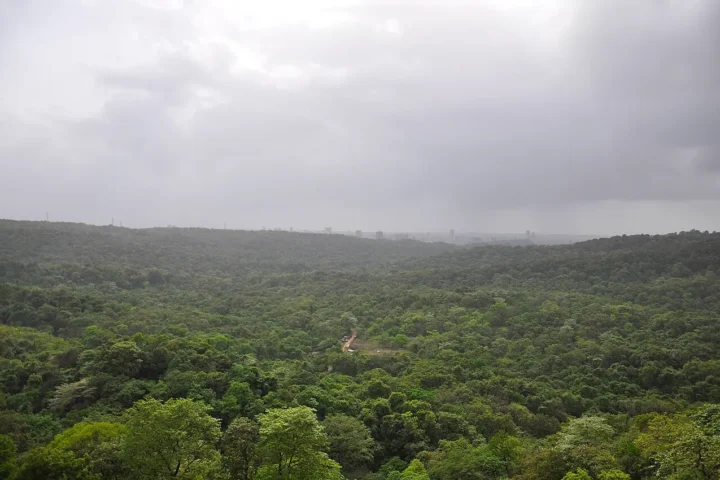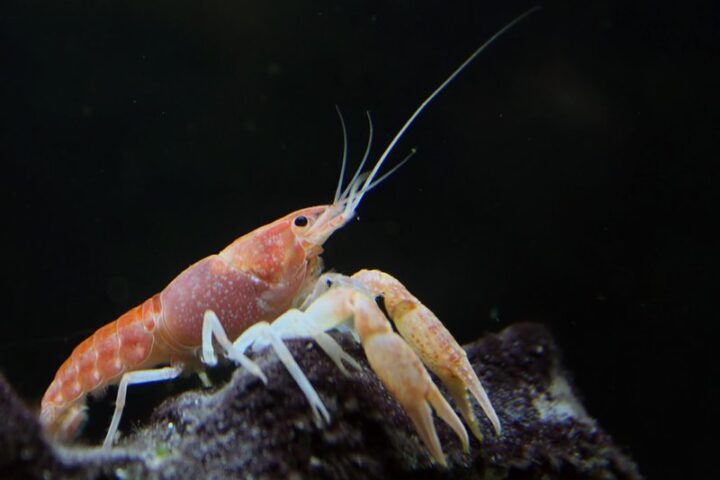When Marine Protected Areas fail to protect marine life, their very purpose crumbles. British seas face this exact crisis today. Over 20,600 hours of bottom trawling occurred in UK offshore MPAs during 2024 alone, while 64% of people wrongly believe such destructive fishing is already banned in these supposedly protected waters.
The UK government’s September 2025 rejection of blanket bottom trawling bans has ignited fierce confrontations between MPs, health professionals, conservation groups, and policymakers over Britain’s marine protection strategy.
Government Draws Feature-Based Protection Lines
DEFRA announced its position in September after publishing responses to the Environmental Audit Committee’s marine environment report. “Our approach is to only restrict fishing which is assessed as damaging to the specific protected features in each MPA”, the department stated. “DEFRA is working to ensure damaging practices do not occur within our MPAs where they could harm protected habitats and species, but blanket bans are disproportionate and not in line with legislation”.
This feature-based management allows bottom trawling in MPA sections where officials determine no damage occurs to designated conservation targets. The Marine Management Organisation consultation covers 41 MPAs spanning approximately 30,000 square kilometers, extending current protection from areas already protected from bottom-towed fishing gear.
England’s 181 MPAs covering 40% of English waters operate as multi-use areas, meaning bottom trawling can occur if it avoids damaging specific protected features. Complete bottom trawling bans exist only in Britain’s three Highly Protected Marine Areas: Allonby Bay, Dolphin Head, and North East of Farnes Deep.
Use html block
<!DOCTYPE html>
<html lang=”en”>
<head>
<meta charset=”UTF-8″>
<meta name=”viewport” content=”width=device-width, initial-scale=1.0″>
<title>UK Marine Protection and Bottom Trawling Policy Timeline</title>
<style>
* {
margin: 0;
padding: 0;
box-sizing: border-box;
}
body {
font-family: ‘Segoe UI’, Tahoma, Geneva, Verdana, sans-serif;
background: linear-gradient(135deg, #1e3c72 0%, #2a5298 100%);
min-height: 100vh;
padding: 20px;
}
.container {
max-width: 1200px;
margin: 0 auto;
background: white;
border-radius: 20px;
box-shadow: 0 20px 40px rgba(0,0,0,0.1);
overflow: hidden;
}
.header {
background: linear-gradient(135deg, #667eea 0%, #764ba2 100%);
color: white;
padding: 30px;
text-align: center;
}
.header h1 {
font-size: 2.5rem;
margin-bottom: 10px;
text-shadow: 2px 2px 4px rgba(0,0,0,0.3);
}
.header p {
font-size: 1.1rem;
opacity: 0.9;
}
.controls {
padding: 30px;
border-bottom: 1px solid #eee;
background: #f8f9fa;
}
.filter-buttons {
display: flex;
flex-wrap: wrap;
gap: 10px;
justify-content: center;
margin-bottom: 20px;
}
.filter-btn {
padding: 8px 16px;
border: 2px solid #667eea;
background: white;
color: #667eea;
border-radius: 25px;
cursor: pointer;
transition: all 0.3s ease;
font-weight: 500;
}
.filter-btn:hover, .filter-btn.active {
background: #667eea;
color: white;
transform: translateY(-2px);
box-shadow: 0 4px 12px rgba(102, 126, 234, 0.3);
}
.search-box {
max-width: 400px;
margin: 0 auto;
position: relative;
}
.search-box input {
width: 100%;
padding: 12px 40px 12px 20px;
border: 2px solid #ddd;
border-radius: 25px;
font-size: 16px;
transition: border-color 0.3s ease;
}
.search-box input:focus {
outline: none;
border-color: #667eea;
}
.search-icon {
position: absolute;
right: 15px;
top: 50%;
transform: translateY(-50%);
color: #999;
}
.timeline-container {
padding: 40px;
background: white;
}
.timeline {
position: relative;
max-width: 1000px;
margin: 0 auto;
}
.timeline::after {
content: ”;
position: absolute;
width: 6px;
background: linear-gradient(135deg, #667eea 0%, #764ba2 100%);
top: 0;
bottom: 0;
left: 50%;
margin-left: -3px;
border-radius: 3px;
}
.timeline-item {
padding: 10px 40px;
position: relative;
background-color: inherit;
width: 50%;
opacity: 0;
transform: translateY(50px);
transition: all 0.6s ease;
}
.timeline-item.visible {
opacity: 1;
transform: translateY(0);
}
.timeline-item::after {
content: ”;
position: absolute;
width: 25px;
height: 25px;
right: -17px;
background-color: white;
border: 4px solid #667eea;
top: 15px;
border-radius: 50%;
z-index: 1;
}
.left {
left: 0;
}
.right {
left: 50%;
}
.right::after {
left: -16px;
}
.content {
padding: 20px 30px;
background-color: white;
position: relative;
border-radius: 15px;
box-shadow: 0 8px 25px rgba(0,0,0,0.1);
border-left: 4px solid #667eea;
transition: all 0.3s ease;
}
.content:hover {
transform: translateY(-5px);
box-shadow: 0 15px 35px rgba(0,0,0,0.15);
}
.content h3 {
color: #333;
margin-bottom: 10px;
font-size: 1.3rem;
}
.content .date {
color: #667eea;
font-weight: bold;
font-size: 0.9rem;
margin-bottom: 8px;
}
.content p {
color: #666;
line-height: 1.6;
margin-bottom: 10px;
}
.content .details {
font-size: 0.9rem;
background: #f8f9fa;
padding: 10px;
border-radius: 8px;
margin-top: 10px;
}
.category-tag {
display: inline-block;
padding: 4px 8px;
border-radius: 12px;
font-size: 0.8rem;
font-weight: 500;
margin-top: 10px;
}
.legislation { background: #e3f2fd; color: #1565c0; }
.consultation { background: #f3e5f5; color: #7b1fa2; }
.enforcement { background: #e8f5e8; color: #2e7d32; }
.policy { background: #fff3e0; color: #ef6c00; }
.international { background: #ffebee; color: #c62828; }
.stats-box {
background: linear-gradient(135deg, #667eea 0%, #764ba2 100%);
color: white;
padding: 20px;
border-radius: 15px;
margin: 30px 0;
text-align: center;
}
.stats-grid {
display: grid;
grid-template-columns: repeat(auto-fit, minmax(200px, 1fr));
gap: 20px;
margin-top: 20px;
}
.stat-item {
background: rgba(255,255,255,0.1);
padding: 15px;
border-radius: 10px;
backdrop-filter: blur(10px);
}
.stat-number {
font-size: 2rem;
font-weight: bold;
margin-bottom: 5px;
}
.hidden {
display: none;
}
@media screen and (max-width: 768px) {
.timeline::after {
left: 31px;
}
.timeline-item {
width: 100%;
padding-left: 70px;
padding-right: 25px;
}
.timeline-item::before {
left: 60px;
border: medium solid white;
border-width: 10px 10px 10px 0;
border-color: transparent white transparent transparent;
}
.left::after, .right::after {
left: 15px;
}
.right {
left: 0%;
}
.header h1 {
font-size: 2rem;
}
.filter-buttons {
justify-content: flex-start;
}
}
</style>
</head>
<body>
<div class=”container”>
<div class=”header”>
<h1>UK Marine Protection & Bottom Trawling Policy Timeline</h1>
<p>Interactive history of legislation, consultations, and enforcement measures</p>
</div>
<div class=”controls”>
<div class=”filter-buttons”>
<button class=”filter-btn active” data-filter=”all”>All Events</button>
<button class=”filter-btn” data-filter=”legislation”>Legislation</button>
<button class=”filter-btn” data-filter=”consultation”>Consultations</button>
<button class=”filter-btn” data-filter=”enforcement”>Enforcement</button>
<button class=”filter-btn” data-filter=”policy”>Policy</button>
<button class=”filter-btn” data-filter=”international”>International</button>
</div>
<div class=”search-box”>
<input type=”text” id=”searchInput” placeholder=”Search timeline events…”>
<span class=”search-icon”>🔍</span>
</div>
</div>
<div class=”stats-box”>
<h3>Current UK Marine Protection Statistics</h3>
<div class=”stats-grid”>
<div class=”stat-item”>
<div class=”stat-number”>377</div>
<div>Total UK MPAs</div>
</div>
<div class=”stat-item”>
<div class=”stat-number”>38%</div>
<div>UK Waters Protected</div>
</div>
<div class=”stat-item”>
<div class=”stat-number”>5%</div>
<div>MPAs with Trawling Bans</div>
</div>
<div class=”stat-item”>
<div class=”stat-number”>30,000</div>
<div>km² Under Current Consultation</div>
</div>
</div>
</div>
<div class=”timeline-container”>
<div class=”timeline”>
<div class=”timeline-item left legislation” data-category=”legislation”>
<div class=”content”>
<div class=”date”>November 2009</div>
<h3>Marine and Coastal Access Act 2009</h3>
<p>Landmark legislation establishing the Marine Management Organisation and creating framework for Marine Protected Areas designation in UK waters.</p>
<div class=”details”>
<strong>Key provisions:</strong> Created MMO with powers to manage marine activities, established marine planning system, provided powers for MPA designation and management. Sections 1-3 came into force January 12, 2010.
</div>
<span class=”category-tag legislation”>Legislation</span>
</div>
</div>
<div class=”timeline-item right enforcement” data-category=”enforcement”>
<div class=”content”>
<div class=”date”>January 2010</div>
<h3>MMO Establishment</h3>
<p>Marine Management Organisation officially established with regulatory powers over English waters beyond 6 nautical miles.</p>
<div class=”details”>
<strong>Functions:</strong> Marine licensing, fisheries management, MPA protection, enforcement of marine legislation. Became operational as UK’s marine management authority.
</div>
<span class=”category-tag enforcement”>Enforcement</span>
</div>
</div>
<div class=”timeline-item left enforcement” data-category=”enforcement”>
<div class=”content”>
<div class=”date”>2003</div>
<h3>Darwin Mounds SAC Protection</h3>
<p>First major bottom trawling restriction in UK waters – Darwin Mounds offshore SAC (185km Northwest of Scotland) closed to bottom trawling.</p>
<div class=”details”>
<strong>Significance:</strong> Seminal period in application of EU Habitats Directive to marine areas. Demonstrated legal precedent for trawling restrictions in sensitive habitats.
</div>
<span class=”category-tag enforcement”>Enforcement</span>
</div>
</div>
<div class=”timeline-item right policy” data-category=”policy”>
<div class=”content”>
<div class=”date”>2008</div>
<h3>Lyme Bay MPA Designation</h3>
<p>Lyme Bay Marine Protected Area established with bottom trawling ban covering 206 square kilometers, becoming model for whole-site protection.</p>
<div class=”details”>
<strong>Results:</strong> 95% increase in reef species over 15 years, 400% enhancement in fish abundance. Demonstrates effectiveness of complete site protection versus partial measures.
</div>
<span class=”category-tag policy”>Policy</span>
</div>
</div>
<div class=”timeline-item left legislation” data-category=”legislation”>
<div class=”content”>
<div class=”date”>November 2020</div>
<h3>Fisheries Act 2020</h3>
<p>UK’s first major domestic fisheries legislation in nearly 40 years, providing new powers to manage fishing in Marine Protected Areas post-Brexit.</p>
<div class=”details”>
<strong>Key powers:</strong> Enhanced MMO authority to make byelaws restricting fishing in MPAs, establishment of charging schemes, framework for Joint Fisheries Statement, licensing requirements for foreign vessels.
</div>
<span class=”category-tag legislation”>Legislation</span>
</div>
</div>
<div class=”timeline-item right consultation” data-category=”consultation”>
<div class=”content”>
<div class=”date”>February 2021</div>
<h3>First Offshore MPA Consultation</h3>
<p>MMO launches formal consultation on protecting four offshore MPAs using new Fisheries Act powers: Dogger Bank, Canyons, South Dorset, Inner Dowsing.</p>
<div class=”details”>
<strong>Consultation period:</strong> February 1 – March 28, 2021. Proposed bottom trawling bans and static gear restrictions. Consultation followed December 2020 call for evidence.
</div>
<span class=”category-tag consultation”>Consultation</span>
</div>
</div>
<div class=”timeline-item left enforcement” data-category=”enforcement”>
<div class=”content”>
<div class=”date”>June 2022</div>
<h3>First Brexit-Era Trawling Bans</h3>
<p>Four MMO byelaws come into effect banning bottom trawling in first offshore MPAs using post-Brexit powers. Covers approximately 14,000 km².</p>
<div class=”details”>
<strong>Protected areas:</strong> Dogger Bank SAC, Inner Dowsing SAC, South Dorset MCZ, Canyons MCZ. High compliance recorded with only 17 potential infringements detected through end of 2023.
</div>
<span class=”category-tag enforcement”>Enforcement</span>
</div>
</div>
<div class=”timeline-item right policy” data-category=”policy”>
<div class=”content”>
<div class=”date”>July 2023</div>
<h3>First HPMAs Designated</h3>
<p>UK designates first three Highly Protected Marine Areas: Allonby Bay, Dolphin Head, Northeast of Farnes Deep with complete fishing bans.</p>
<div class=”details”>
<strong>Protection level:</strong> Whole-site approach prohibiting all extractive activities. HPMAs represent highest level of marine protection available under UK law.
</div>
<span class=”category-tag policy”>Policy</span>
</div>
</div>
<div class=”timeline-item left enforcement” data-category=”enforcement”>
<div class=”content”>
<div class=”date”>March 2024</div>
<h3>Stage 2 Byelaws Implemented</h3>
<p>MMO implements byelaws protecting reef habitats in 13 additional MPAs, covering almost 4,000 km² and bringing total protected area to 18,000 km².</p>
<div class=”details”>
<strong>Protection focus:</strong> Reef and rocky habitats vulnerable to bottom towed gear. Total protected area now larger than Yorkshire and Kent combined.
</div>
<span class=”category-tag enforcement”>Enforcement</span>
</div>
</div>
<div class=”timeline-item right consultation” data-category=”consultation”>
<div class=”content”>
<div class=”date”>June 2025</div>
<h3>Stage 3 Major Consultation</h3>
<p>Government announces consultation on bottom trawling restrictions in 42 MPAs covering 30,000 km², largest marine protection proposal to date.</p>
<div class=”details”>
<strong>Scope:</strong> Consultation period extended to September 29, 2025. Covers feature-based vs whole-site protection debate. Includes 31 MPAs with bottom-towed gear prohibitions.
</div>
<span class=”category-tag consultation”>Consultation</span>
</div>
</div>
<div class=”timeline-item left policy” data-category=”policy”>
<div class=”content”>
<div class=”date”>June 2025</div>
<h3>Environmental Audit Committee Report</h3>
<p>Parliamentary committee publishes “Governing the Marine Environment” report recommending whole-site bottom trawling bans in offshore MPAs.</p>
<div class=”details”>
<strong>Key findings:</strong> Government failure to effectively manage MPA gaps, outdated Marine Policy Statement, need for High Seas Treaty ratification by September 2025.
</div>
<span class=”category-tag policy”>Policy</span>
</div>
</div>
<div class=”timeline-item right policy” data-category=”policy”>
<div class=”content”>
<div class=”date”>September 2025</div>
<h3>Government Rejects Blanket Bans</h3>
<p>DEFRA publishes response rejecting whole-site bans, favoring feature-based protection. Committee Chair writes to Environment Secretary seeking clarification.</p>
<div class=”details”>
<strong>Position:</strong> “Blanket bans are disproportionate and not in line with legislation.” Maintains approach of restricting fishing only where assessed as damaging to specific protected features.
</div>
<span class=”category-tag policy”>Policy</span>
</div>
</div>
<div class=”timeline-item left international” data-category=”international”>
<div class=”content”>
<div class=”date”>Ongoing</div>
<h3>International Context</h3>
<p>EU mandates MPA protection from harmful fishing by 2030. Greece and Sweden begin national bottom trawling bans. UK signs but hasn’t ratified High Seas Treaty.</p>
<div class=”details”>
<strong>Global targets:</strong> 30% ocean protection by 2030 under international biodiversity commitments. UK contribution to Global Fund for Coral Reefs reaches £40 million.
</div>
<span class=”category-tag international”>International</span>
</div>
</div>
</div>
</div>
</div>
<script>
// Filter functionality
const filterButtons = document.querySelectorAll(‘.filter-btn’);
const timelineItems = document.querySelectorAll(‘.timeline-item’);
const searchInput = document.getElementById(‘searchInput’);
// Initialize intersection observer for animations
const observer = new IntersectionObserver((entries) => {
entries.forEach(entry => {
if (entry.isIntersecting) {
entry.target.classList.add(‘visible’);
}
});
}, {
threshold: 0.1
});
timelineItems.forEach(item => {
observer.observe(item);
});
// Filter button event listeners
filterButtons.forEach(button => {
button.addEventListener(‘click’, () => {
// Remove active class from all buttons
filterButtons.forEach(btn => btn.classList.remove(‘active’));
// Add active class to clicked button
button.classList.add(‘active’);
const filter = button.getAttribute(‘data-filter’);
filterItems(filter);
});
});
// Search functionality
searchInput.addEventListener(‘input’, (e) => {
const searchTerm = e.target.value.toLowerCase();
const activeFilter = document.querySelector(‘.filter-btn.active’).getAttribute(‘data-filter’);
timelineItems.forEach(item => {
const content = item.textContent.toLowerCase();
const category = item.getAttribute(‘data-category’);
const matchesSearch = content.includes(searchTerm);
const matchesFilter = activeFilter === ‘all’ || category === activeFilter;
if (matchesSearch && matchesFilter) {
item.style.display = ‘block’;
item.style.opacity = ‘1’;
} else {
item.style.display = ‘none’;
}
});
});
function filterItems(filter) {
const searchTerm = searchInput.value.toLowerCase();
timelineItems.forEach(item => {
const category = item.getAttribute(‘data-category’);
const content = item.textContent.toLowerCase();
const matchesFilter = filter === ‘all’ || category === filter;
const matchesSearch = searchTerm === ” || content.includes(searchTerm);
if (matchesFilter && matchesSearch) {
item.style.display = ‘block’;
setTimeout(() => {
item.style.opacity = ‘1’;
}, 100);
} else {
item.style.display = ‘none’;
}
});
}
// Add hover effects for enhanced interactivity
timelineItems.forEach(item => {
const content = item.querySelector(‘.content’);
item.addEventListener(‘mouseenter’, () => {
content.style.transform = ‘translateY(-5px) scale(1.02)’;
content.style.boxShadow = ‘0 20px 40px rgba(0,0,0,0.15)’;
});
item.addEventListener(‘mouseleave’, () => {
content.style.transform = ‘translateY(0) scale(1)’;
content.style.boxShadow = ‘0 8px 25px rgba(0,0,0,0.1)’;
});
});
// Smooth scrolling for better UX
function smoothScroll(target) {
target.scrollIntoView({
behavior: ‘smooth’,
block: ‘center’
});
}
// Add click handlers for timeline items
timelineItems.forEach(item => {
item.addEventListener(‘click’, () => {
// Add subtle click feedback
const content = item.querySelector(‘.content’);
content.style.transform = ‘scale(0.98)’;
setTimeout(() => {
content.style.transform = ‘scale(1)’;
}, 150);
});
});
</script>
</body>
</html>
Medical Professionals Link Seabed to Human Health
The Doctors’ Association UK has drawn direct connections between bottom trawling and public health through climate impacts. Dr Matt Lee, DAUK’s sustainability lead, expressed concern that while the Government was “widening protections from destructive fishing practices in the seas around the UK”, it “did not go far enough in protecting the UK’s seas and tackling the climate crisis threatening human health”.
More Posts
“DAUK is pleased the UK has signed the High Seas Treaty. However, we remain concerned the Government is avoiding an outright bottom trawling ban in all UK marine protected areas”, Dr Lee stated in DAUK’s press release.
Dr Lee explained the health connection: “The release of stored carbon from the seabed can exacerbate the greenhouse effect, thereby intensifying climate change phenomena that directly impact public health through increased risks of flooding and extreme weather events”.
“Trawling is an environmentally destructive practice, indiscriminately catching and killing everything in its track”, Dr Lee continued. “We urge the UK Government to support the recommendations from experts in the field, such as Marine Conservation Society and Oceana UK, and enact a blanket ban on all trawling activity in all marine protected areas. Doing so would help restore UK fish stocks and marine biodiversity. It would enhance our marine carbon capture potential, and work towards the nature restoration that we desperately need to tackle the climate and nature crises”.
The UK Health Security Agency’s Health Effects of Climate Change Report shows global warming could cause up to around 10,000 excess heat-related deaths annually in the UK by 2050 under high warming scenarios, according to official UK analyses.
Parliamentary Pressure Builds Against Half-Measures
Environmental Audit Committee chair Toby Perkins launched sustained criticism of government policy through the committee’s official response. “Bottom trawling is a destructive practice”, Perkins stated. “We hugely welcome the Government moving forward with banning it in more protected areas of our oceans. However, the Committee is disappointed that the Government has not committed to wider bans within Marine Protected areas which risk undermining the integrity of Marine Protected Areas”.
The Environmental Audit Committee published the Government’s response to its report on ‘Governing the marine environment’ in September. The report, published in June, recommended ministers push ahead with banning practices such as bottom trawling that damage the seabed within offshore Marine Protected Areas.
A few days after the June report publication, the Government announced it would progress with bottom trawling bans and launched consultation on changes. However, DEFRA’s September response clarified “it is not the Government’s policy to introduce whole-site bans on bottom towed fishing gear in MPAs”.
In a letter published alongside the committee response, Perkins wrote to newly appointed Secretary of State Emma Reynolds. The Chair repeated the Committee’s call to completely ban bottom trawling within offshore MPAs, asking her to clarify whether she will ensure the government’s approach does not undermine protected waters integrity.
Minister for Water Emma Hardy previously told the Committee the Government was “committed to not having bottom trawling in areas that damage the MPAs, especially when they are attached to features that we are trying to protect”. Yet the Government has provided no timeline for further protective action.
Numbers Expose Protection Gaps
Britain’s MPA network covers impressive territory but lacks enforcement teeth. The UK designated 377 MPAs by May 2024, protecting 38% of UK waters total. England specifically has 181 MPAs covering 40% of English waters, yet only 38 of the UK’s 377 MPAs (approximately 10%) currently ban bottom trawling.
Satellite tracking reveals the protection deficit. French vessels conducted 55% of tracked bottom trawling hours in UK MPAs during 2024, with UK vessels responsible for 19%. The remaining activity split among multiple nations. Three MPAs off Cornwall and Scotland suffered combined 8,597 hours of suspected bottom trawling in 2024.
Only 38 of the UK’s 377 MPAs receive full legal protection from destructive bottom trawling. Over 90% of offshore MPAs and most inshore MPAs continue experiencing dredging and trawling. The Marine Management Organisation data shows offshore MPAs alone suffered over 20,600 hours of suspected bottom trawling in 2024.
Currently, 44% of MPA features maintain “favourable condition” status. The Environment Act 2021 commits Britain to increasing this figure to 70% by 2042, requiring enhanced monitoring, enforcement, and stricter regulatory measures.
Industrial Seabed Bulldozing Mechanics
Bottom trawling involves dragging weighted nets and heavy metalwork across seabeds to capture fish living near ocean floors. The gear weighs several tonnes and operates like underwater bulldozing, destroying fragile ecosystems and habitats requiring decades or centuries for recovery.
Single trawl passes can significantly damage seabeds, with recovery times varying by habitat type from years to decades. The technique indiscriminately captures all marine life in its path, creating massive bycatch of non-target species including porpoises, starfish, sponges, and sea fans. Worldwide data shows bottom trawlers discarded approximately 437 million tonnes of untargeted marine life during the past 65 years.
These destroyed habitats typically provide food and shelter for diverse marine life, forming infrastructure for sustainable, low-impact fisheries supporting coastal communities. The seabeds also store blue carbon and provide natural coastal defenses against storms and erosion.
Lyme Bay Proves Recovery Possibilities
Scientific monitoring in Lyme Bay demonstrates full protection benefits. Ongoing annual monitoring over 15 years showed whole-site MPA management can produce significant increases in reef species and enhance fish abundance by almost 400% in terms of overall numbers and diversity.
The Lyme Bay Marine Protected Area, designated in 2008 with statutory protection covering 206 square kilometers of seabed from bottom-towed fishing gear, provides compelling recovery evidence. Within one decade, species numbers in protected zones increased 39% compared with 5% declines outside protected boundaries.
Partial feature protection in Lyme Bay achieved 15% marine life abundance increases, while whole-site protection areas reached 95% increases.
Local fisherman Matt Toms, operating in the area for 35 years, witnessed direct changes. “Since destructive bottom trawling was banned, he has observed a lot more fish in the area, including black bream breeding in the bay once again”, according to parliamentary records.
Dr Emma Sheehan, associate professor of marine ecology at Plymouth University, leads ongoing Lyme Bay monitoring. “We still haven’t got a plateau in the recovery. We’re nowhere near there – it’s still recovering, year on year”, she confirmed.
Plymouth University scientists recorded 22% increases in fragile pink sea fans following bans and three times greater abundance of all bottom-living species in reserves compared with outside areas.
Industry Fights Back with Economic Arguments
Fishing industry representatives express strong opposition to expanded restrictions. Scottish Fishermen’s Federation chief executive Elspeth Macdonald stated: “It is extremely disappointing that the UK Government seems to have caved to the emotional, unevidenced siren calls of the environmental NGOs and Sir David Attenborough and announced a ban on trawling in English MPAs”.
“We are sure that the Scottish Government will take a much more intelligent, grown-up and responsible approach to the rules and regulations around fishing in Scotland’s MPAs, one that is based on scientific evidence and allows coexistence between conservation and sustainable use”, Macdonald continued.
“Banning fishing in such an arbitrary and ignorant fashion will deprive hardworking people of their jobs and cost very often marginal communities much-needed income. Far more carbon-intensive forms of food production will also be required in its place, ultimately defeating the very ends which campaigners hope to achieve”.
The National Federation of Fishermen’s Organisations opposes bottom trawling bans, arguing economic impacts on coastal communities outweigh environmental benefits.
Public Opinion Strongly Favors Marine Protection
Research from Oceana shows eight in 10 UK adults favor banning destructive bottom trawling in marine protected areas. The most striking finding reveals widespread public misunderstanding about current protection levels.
Surveys of over 2,000 people by Savanta revealed 64% mistakenly believe bottom trawling bans already exist in MPAs. More than one-third (36%) incorrectly assume MPA designation means all wildlife and seabeds receive protection from damaging activities.
Wildlife Trusts polling confirms public expectations. Marine conservation officer Daniele Clifford noted people naturally assume “protected” areas prohibit harmful activities like destructive bottom trawling, yet “these fragile ecosystems remain exposed to one of the most destructive forms of industrial fishing”.
Conservation Groups Demand Whole-Site Bans
Environmental organizations argue feature-based protection fragments habitats and undermines recovery potential. The UK Government rejected calls for whole-site bottom trawling bans in marine protected areas following the Environmental Audit Committee’s report ‘Governing the Marine Environment’, according to multiple conservation group responses.
DEFRA confirmed restrictions apply only where fishing is assessed as harmful to specific protected features, calling blanket bans “disproportionate”. The department highlighted ongoing efforts preventing damaging practices and continued conservation funding but declined updating the Marine Policy Statement or expanding Highly Protected Marine Areas to 10% of UK waters by 2030.
Committee Chair Toby Perkins repeated calls for complete bottom trawling bans in offshore marine protected areas, expressing disappointment that “the Government has not committed to wider bans within marine protected areas which risk undermining the integrity of marine protected areas”.
Environmental groups including Oceana UK argue feature-based rules fragment habitats and limit ecosystem recovery potential compared with whole-site protection approaches.
Marine Policy Statement Controversy Deepens
The committee criticized government refusal to update the 2011 Marine Policy Statement, which guides marine planning decisions and includes support for oil and gas exploration. The Committee concluded the MPS was outdated and recommended updates reflecting current government policy and marine environment pressures.
Government response stated it would not update the MPS because commitments against new oil and gas licenses meant relevant aspects “no longer carried any practical effect”. Committee concerns focus on relying on alternative plans without updated MPS “risks undermining transparency and consistency in decision-making”.
Perkins urged government reconsideration: “We also believe that updating the Marine Policy statement would demonstrate its importance and provide clarity to all users of our seas”.
International Comparisons Show UK Lagging
European neighbors advance marine protection faster than Britain. Several EU countries including Greece and Sweden have taken steps toward restricting bottom trawling in their marine protected areas. An Oceana study found destructive fishing affects 86% of Natura 2000 designated areas protecting marine habitats across Europe.
The European Commission’s 2023 Action Plan sets the objective to end bottom-towed gear in MPAs by 2030, while Scotland announced protections covering almost 60,000 square kilometers. EU policy requires member states to manage harmful fishing practices in MPAs.
Britain signed the UN High Seas Treaty in 2023 but has not yet completed formal ratification. The Environmental Audit Committee recommended ratification by September 2025, two years after UK signing. MPs raised concerns about UK failure to ratify the treaty aiming to protect marine life in high seas.
Consultation Process and Timeline Updates
MMO extended its Stage 3 consultation deadline from September 1 to September 29, 2025, providing additional stakeholder response time. The consultation covers 41 marine protected areas with proposed management measures implemented through four regional byelaws covering different sea areas.
Proposed measures include prohibitions of bottom-towed gear in specified areas across 31 MPAs, combined prohibitions of bottom-towed gear and static gear restrictions in four MPAs, trap prohibitions in one MPA, and minor changes to existing restrictions in five MPAs reflecting updated habitat location and depth information.
Total seabed protection under proposed measures spans approximately 30,000 square kilometers. Measures target sensitive seabed habitats and species including circalittoral rock, fan mussels, ocean quahogs, sea-pen and burrowing megafauna communities at risk from damaging fishing activity.
Economic Benefits of Protection
Analyses suggest banning bottom trawling in offshore MPAs would deliver significant economic benefits over 20 years, factoring climate regulation and ecosystem services. Scientific evidence demonstrates properly protected areas benefit both marine wildlife and local livelihoods.
Analysis collating multiple study results found total fish weight in protected areas averaged over 100% higher than surrounding areas. This abundance creates positive spillover effects, such as fishers near Arran, Scotland catching more and larger lobsters near highly protected areas acting as wildlife havens.
Marine ecosystems provide essential primary production and climate regulation, delivering vital functions supporting life. UK seabeds play crucial roles in carbon sequestration, providing significant ecosystem benefits.
Government Ocean Conference Commitments
At the United Nations Ocean Conference, government pledged £4 million to the Global Fund for Coral Reefs, bringing UK total contributions to £40 million. Additional £2.8 million investment supports the Outrigger Technical Assistance Fund for sustainable blue economies in small island developing states.
Government reiterated commitments to ambitious, legally binding plastic pollution treaties when negotiations resume. The government stated commitments to “protecting and restoring our ocean to good health, delivering on our commitment to protect 30 per cent of the ocean by 2030”.
What’s Next for British Seas
The MMO consultation results will determine final management measures and enforcement mechanisms across England’s marine network. Outcomes shape how Britain balances conservation commitments with fishing industry concerns as governments work toward protecting 30% of ocean areas by 2030 under international biodiversity commitments.
The debate reflects broader tensions between traditional fishing practices and conservation goals. How Britain resolves competing demands for marine space will influence conservation strategies across Europe and demonstrate whether the nation can deliver meaningful protection or continue with nominal “paper park” designations.
Environmental Audit Committee oversight continues through parliamentary sessions, while DAUK maintains pressure linking marine health to public health outcomes. Conservation organizations prepare for implementation monitoring, and fishing industry groups organize resistance to expanded restrictions.
The consultation documents and public responses will be considered to inform final decisions on enhanced protection areas and enforcement operation across England’s marine network.
